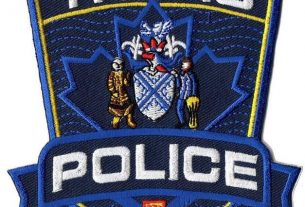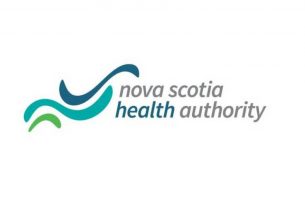**** HEALTH/WELLNESS Media Release
New Restrictions to Reduce Spread of COVID-19
—————————————————————-
Protecting the health and safety of Nova Scotians by taking steps to slow the spread of the coronavirus is government’s top priority. That is why new restrictions on gathering limits and social circles in urban and many suburban areas of Halifax Regional Municipality (HRM) and Hants County were announced today, Nov. 20.
In addition to the new restrictions, government is also announcing:
— Auburn Drive High School in Cole Harbour and Graham Creighton Junior High in Cherry Brook will remain closed for two weeks after cases of COVID-19 were identified there earlier this week
— new provincewide requirements that limit the movement of long-term care residents outside their facilities
— new provincewide requirements for full-service restaurants and licenced establishments to collect the contact information of all patrons
— additional information for people who must self-isolate when entering Nova Scotia from outside the Atlantic Bubble
“This is a critical time for Nova Scotians,” said Premier Stephen McNeil. “We have seen more cases in the last three weeks than in the last three months. But we have learned from our experience in the first wave of COVID-19 and what we have seen in other provinces. That is why we are a taking a targeted approach now to contain the virus and stop the spread.”
Nova Scotia had 16 new cases of COVID-19 in August, two in September, 21 in October and 51 so far in November. There are three cases in a family of schools.
New gathering limits will apply in all of HRM except the areas east of Porters Lake to Ecum Secum. The limits will also apply to the Enfield and Mount Uniacke areas in both HRM and Hants County. The limits do not apply in Elmsdale and communities north of there. From Nov. 23, at 12:01 a.m., to Dec. 21, the gathering limits in those areas of HRM and Hants County will be as follows:
— five people can gather in a close social group without physical distancing, down from 10
— a household may have more than five members but they may only go outside the home in groups of five
— households can only have a maximum of five visitors at a time
— onsite gatherings at long-term care facilities can have a maximum of five people (including residents and staff), down from 10
— adult day programs for seniors who live in the community will not be allowed
— 25 people, down from 50, can gather with physical distancing for informal indoor and outdoor social events like a neighbourhood street party
— indoor events run by a recognized business or organization can have 50 per cent of the venue’s capacity to a maximum of 100 people with physical distancing, down from 200
— outdoor events run by a recognized business or organization can have 150 people with physical distancing, down from 250
Bar staff in peninsular Halifax will be tested over seven days starting early next week. Staff will receive information from their employer soon on how to arrange testing.
“COVID is a social virus – it likes social contact because that’s how it spreads. COVID-19 flourishes in close-contact settings,” said Dr. Robert Strang, Nova Scotia’s chief medical officer of health. “That’s why we have to reduce our social circles and our gathering sizes outside of schools and the workplace. I know this will not be easy, but it’s an initial step to contain the community spread and avoid the potential to overwhelm our health-care system. It’s also why we will be testing bar staff in peninsular Halifax because they are now on the social frontlines of the pandemic and we need to keep them safe.”
The province is moving Graham Creighton Junior High and Auburn Drive High School to full online learning for two weeks as a cautionary measure, with an intended reopening date of Dec. 7. Students will be provided with computers, if needed. Teachers will deliver classes online and students will participate in a combination of real-time instruction and self-directed learning. Students will have opportunities to engage virtually with their peers, teachers, and a variety of specialists and supports.
“In collaboration with public health, we’ve developed a range of supports and practices to deal with positive COVID-19 cases in our schools,” said Education and Early Childhood Development Minister Zach Churchill. “In response to the additional case in our schools, and the rising number of COVID-19 cases in the local community, and following discussions with public health, we are closing the two schools and supporting our students with online learning.”
The following restrictions for long-term care facilities will apply across the province from Nov. 23, at 12:01 a.m., to Dec. 21:
— residents can only leave their facilities for medical/dental appointments
— a registered designated caregiver can take a resident for a sight-seeing car ride but they cannot include additional passengers or stops for shopping, visits, etc., of any kind or use drive-thrus
— a facility can continue sight-seeing outings using their vehicles, but physical distancing is required, no other passengers are permitted in the vehicle and there are no stops of any kind including use of drive-thrus
Starting on Nov. 23, at 12:01 a.m., full-service restaurants and licensed establishments across the province must collect accurate contact information on each patron, including date and time of visit, name and phone number. This data must be retained for four weeks from date of visit for contact-tracing purposes. There is no end date for this requirement.
As announced on Nov. 9, people who travel outside Atlantic Canada when it is not necessary must self-isolate in a completely separate space with no contact or shared living spaces with the rest of the household. Otherwise, the entire household must self-isolate or the traveler must self-isolate in another location.
Recognizing the impacts of self-isolation requirements, the following situations are now recognized as necessary travel and do not require the entire household to self-isolate along with the traveler as long as a strict protocol for shared spaces is followed:
— people who must travel for work that cannot be done virtually and don’t meet the criteria for rotational workers
— legal custody arrangements that require parents or children to travel for visits
— essential, specialized health-care treatment that is not available in Atlantic Canada
— participating in an essential legal proceeding outside Atlantic Canada when virtual attendance is not possible
— students studying outside of Atlantic Canada whose primary or family residence is in Nova Scotia
The protocol for self-isolation after necessary travel and other self-isolation information is at http://novascotia.ca/coronavirus/
Quick Facts:
— a list of HRM and Hants County communities affected by the new restrictions is available at http://novascotia.ca/coronavirus/
— a state of emergency was declared under the Emergency Management Act on March 22 and extended to Nov. 29
— the COVID-19 self-assessment is at http://covid-self-assessment.novascotia.ca/
— online booking is available for Nova Scotians to get a COVID-19 test at all primary assessment centres or at the IWK Health Centre in Halifax
Additional Resources:
Government of Canada: http://canada.ca/coronavirus
Government of Canada information line 1-833-784-4397 (toll-free)
The Mental Health Provincial Crisis Line is available 24/7 to anyone experiencing a mental health or addictions crisis, or someone concerned about them, by calling 1-888-429-8167 (toll-free)
Kids Help Phone is available 24/7 by calling 1-800-668-6868 (toll-free)
For help or information about domestic violence 24/7, call 1-855-225-0220 (toll-free)
For more information about COVID-19 testing and online booking, visit http://novascotia.ca/coronavirus/symptoms-and-testing/




